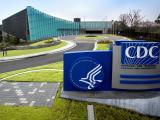Mar 22, 2011 (CIDRAP News) – Health officials in the United Kingdom today released proposed revisions to its pandemic preparedness strategy, which take into account lessons learned during the 2009 H1N1 pandemic, such as a need for flexible plans covering a range of severity scenarios.
The United Kingdom, especially England, faced harsh criticism from politicians and others for what some saw as a disproportionate response to the 2009 H1N1 pandemic, which was mild to moderate compared with a worst-case scenarios that served as the framework for earlier planning.
In publishing the 70-page document today on its Web site, the UK Department of Health (DH) asked public health, medical, and other groups to comment on the plan by Jun 17. It said it will incorporate the feedback, plus findings from an ongoing review of high-impact events that is under way, in a final pandemic preparedness strategy slated for a September release.
Officials said the updated pandemic plan is based on the latest scientific evidence, which they included in an accompanying overview. The United Kingdom issued its last pandemic plan in 2007.
Revised planning also focuses on making early, rapid, and accurate assessments of the emerging pandemic threat, taking into account differences in the rate and spread of the virus in the nation and globally, understanding public perceptions and behavior during a pandemic, and improving management of the end of the pandemic.
The unpredictability of flu viruses, plus several scientific controversies and debates about the virus, make pandemic planning a challenge, DH officials said. For example, they said it's unclear which changes in animal viruses relate to transmission in humans and which genetic changes relate to pathogenicity and ease of transmission.
While including several planning assumptions, the DH emphasized that those aren't predictions of what could happen. "A lesson learned from the H1N1 2009 influenza pandemic was that calling the planning assumptions 'reasonable' was not well understood. Many people wrongly thought that it meant this was the likely scenario," it wrote.
Despite the analysis and past experience that goes into planning assumptions, preparing for a pandemic will always require an element of judgment, the group noted. "There is no 'right answer' and even experts may disagree on the 'reasonable' levels for planning."
Among the assumptions in the proposed plan are that the pandemic virus would reach the United Kingdom quickly and last 3 to 5 months, depending on the season, and cause a range of symptoms in roughly half the population.
The revised plan includes steps for the initial phase of the pandemic response, followed by tiered levels for low-, moderate-, and high-impact events.
The World Health Organization (WHO) pandemic phases are useful at the global level to describe the spread of the disease and guide global response steps such as vaccine production, but they aren't planning tools for individual countries, the plan states. During the pandemic some critics knocked the government for using the WHO phases to guide response actions.
"The use of WHO phases as a trigger for the different stages of local response, as previously recommended, therefore proved to be confusing and unhelpful, and a more flexible approach is needed in future," the DH's pandemic planners wrote.
In proposing a phase system for UK countries to use, the DH included the mnemonic "detect, evaluate, treat, escalate, and recover" (DETER).
Regarding antiviral medications, the DH said it is planning to change its guidance to allow physicians more flexibility in prescribing them to patients who are not in traditional risk groups, but who they consider may be at greater risk for serious complications. It said it does not plan to adopt a general household prophylaxis strategy, except during a limited initial period as one possible way to slow the spread of the disease.
Because producing a pandemic vaccine would still likely take 4 to 6 months, the UK government is in talks with pharmaceutical companies about securing new advance supply agreements for pandemic vaccines, which they expect to play the biggest role in preventing disease during second and successive waves of infections.
See also:
Mar 22 UK proposed pandemic preparedness strategy


















